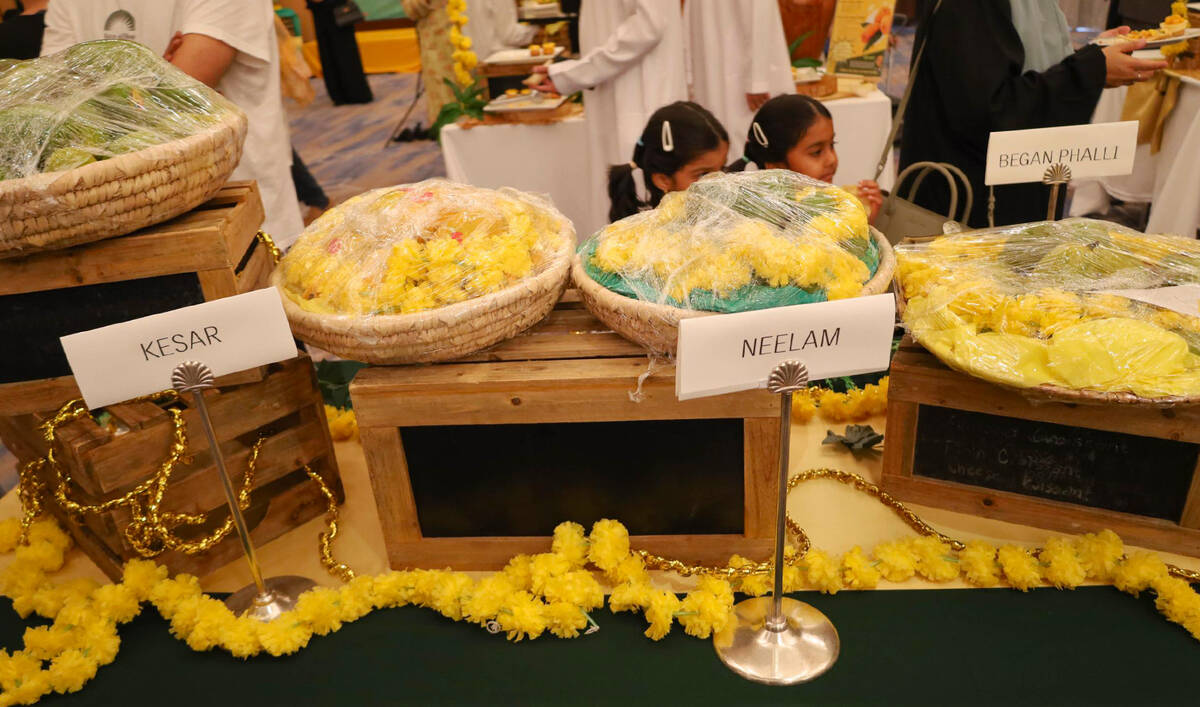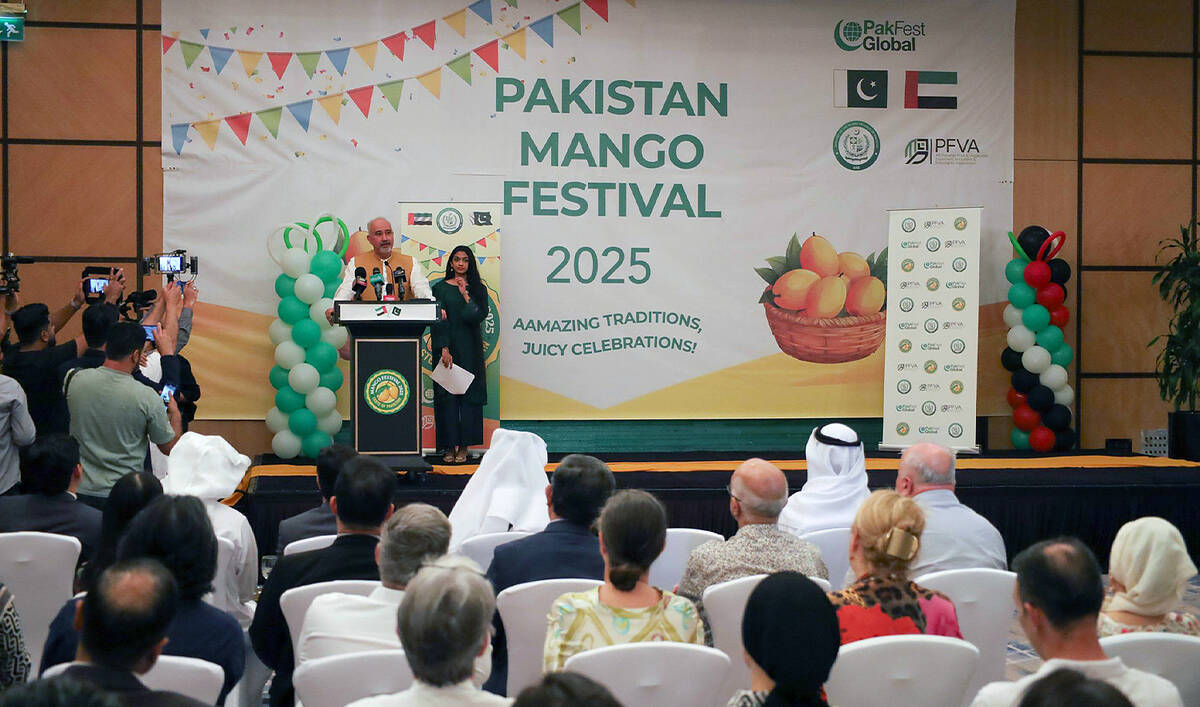ISLAMABAD: Iranian foreign minister Seyed Abbas Araghchi arrived in Pakistan’s capital on Tuesday for a two-day official visit to discuss a range of issues, including tensions in the Middle East, saying at a press conference that Tehran reserved the right to a “legitimate defense” against Israeli aggressions though it did not seek escalation.
Araghchi was addressing a joint media briefing with Pakistani Deputy Prime Minister and Foreign Minister Ishaq Dar in which he spoke about Israel’s “crimes and acts of genocide” in Gaza, its ongoing attacks in Lebanon and its assault on Iran on Oct. 26.
Iran’s supreme leader on Saturday threatened Israel and the US with “a crushing response” over attacks on Iran and its allies. Any further attacks from either side could engulf the wider Middle East, already teetering over Israel’s assault of the Gaza Strip and its ground invasion of Lebanon, into a wider regional conflict as the US goes into a presidential election today, Tuesday.
“Unlike the Israeli regime, the Islamic Republic of Iran does not seek escalation,” Araghchi told reporters. “However, we reserve our inherent right to legitimate defense under Article 51 of the United Nations Charter and we would certainly respond to the Israeli aggression in a proper time and in a proper manner.”
Since the deadliest attack by Hamas in its history on Oct. 7, 2023, Israel has carried out air and ground strikes in Gaza in which over 42,000 people have been killed. Since late September, it has also been at war with Hezbollah in Lebanon. Both Hezbollah and Hamas are allies of Iran.
Pakistan, a major ally of Saudi Arabia, shares a long border with Iran but ties have been frosty over a range of issues, including cross-border militancy.
During Tuesday’s press conference, the Iranian foreign minister appreciated Pakistan’s stance in condemning Israeli aggression against Iran.
“We [Muslim nations] are working toward a solution to stop these atrocities and to alleviate the suffering of the people of Gaza and Lebanon at the upcoming OIC meeting, especially as winter approaches, which will only intensify the hardships of the homeless and refugees in Gaza and Lebanon,” Araghchi added.
Saudi Arabia will also host a joint Arab-Islamic summit on Nov. 11 to address Israeli assaults in the Palestinian territories and Lebanon.
PAK-IRAN TIES
Speaking about bilateral relations, Araghchi reiterated Iran’s commitment to the promotion of ties with Pakistan in all areas, including economic, political, academic, cultural, and tourism.
“The objective of this round of consultation is the promotion of the all-out relations between Iran and Pakistan with a new focus on the bilateral relations, particularly in the areas of trade and economy,” he added.
Speaking at the media briefing, Pakistani FM Dar said during his meetings with Araghchi, he had emphasized the need for an “urgent” ceasefire, de-escalation, and dialogue aimed at realizing the Palestinian people’s right to self-determination.
“We also resolved that in the upcoming joint Islamic summit in Jeddah, which has been scheduled for the 11th of November, we would pool our efforts in order to make sure that we come up with a joint approach to the issues for which this joint summit has been called,” Dar said.
Dar said both sides had also discussed ways to enhance cooperation across several key areas, including trade, energy, and border security.
“We agreed to intensify collaboration on border management and address shared challenges as we underscored that terrorism and extremism pose a serious threat to the regional peace and pledged to coordinate our joint efforts to eradicate these challenges,” he added.
Araghchi later held a meeting with Prime Minister Shehbaz Sharif who reaffirmed Pakistan’s desire to further strengthen its relations with Iran by maintaining regular high-level exchanges and enhancing mutually advantageous cooperation across all spheres of shared interest, according to Sharif’s office.
“During the meeting, the worrying situation in the Middle East region came under discussion. While reaffirming Pakistan’s unequivocal support to the Palestinian people in their just struggle for self-determination and statehood, the Prime Minister reiterated strong condemnation of and grave concern over the Israel’s ongoing genocidal campaign against the Palestinian people,” Sharif’s office said in a statement.
“The Prime Minister also emphasized upon the need for an immediate ceasefire in Gaza, provision of unhindered humanitarian assistance and, above all, grant of the inalienable right to self-determination to the Palestinian people, as guaranteed to them by the relevant resolutions of the UN, as well as OIC.”
Sharif once again condemned Israel’s attack against Iran on October 26, reaffirming Pakistan’s support for Iran’s sovereignty and territorial integrity, according to the statement. The Iranian foreign minister thanked the prime minister for Pakistan’s principled position and briefed him on Iran’s perspective regarding the situation in the region.
Pakistan and Iran have had a rocky relationship despite several commercial pacts between the two countries on trade, energy, and security. Both countries signed the $7 billion Iran-Pakistan gas pipeline project agreement in 2004 but 20 years on, the project remains incomplete due to funding challenges and threats of US sanctions over doing business with Tehran.
Iran has completed the pipeline’s construction on its side of the border while Pakistan is seeking a US waiver to go ahead with building the project. Pakistan has also hired two prominent US law firms, Willkie Farr & Gallagher and White & Case, to defend its position in an international arbitration case initiated by Tehran over the stalled gas pipeline project, the attorney general confirmed to Arab News on Monday.
Pakistan and Iran are also often at odds over instability on their shared, porous frontier, with both countries routinely trading blame for not doing enough against militants who carry out cross-border attacks.
Tensions surged in January when Pakistan and Iran exchanged airstrikes, both claiming to target alleged militant hideouts in each other’s countries
























